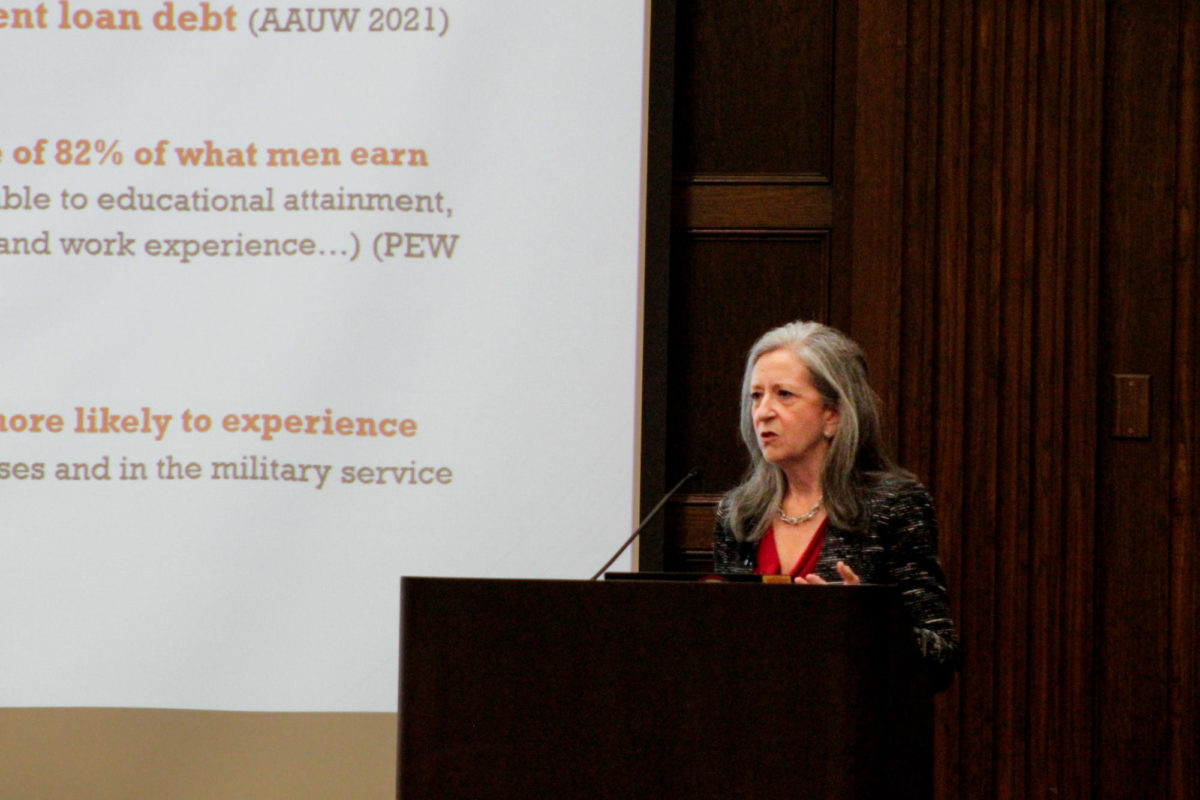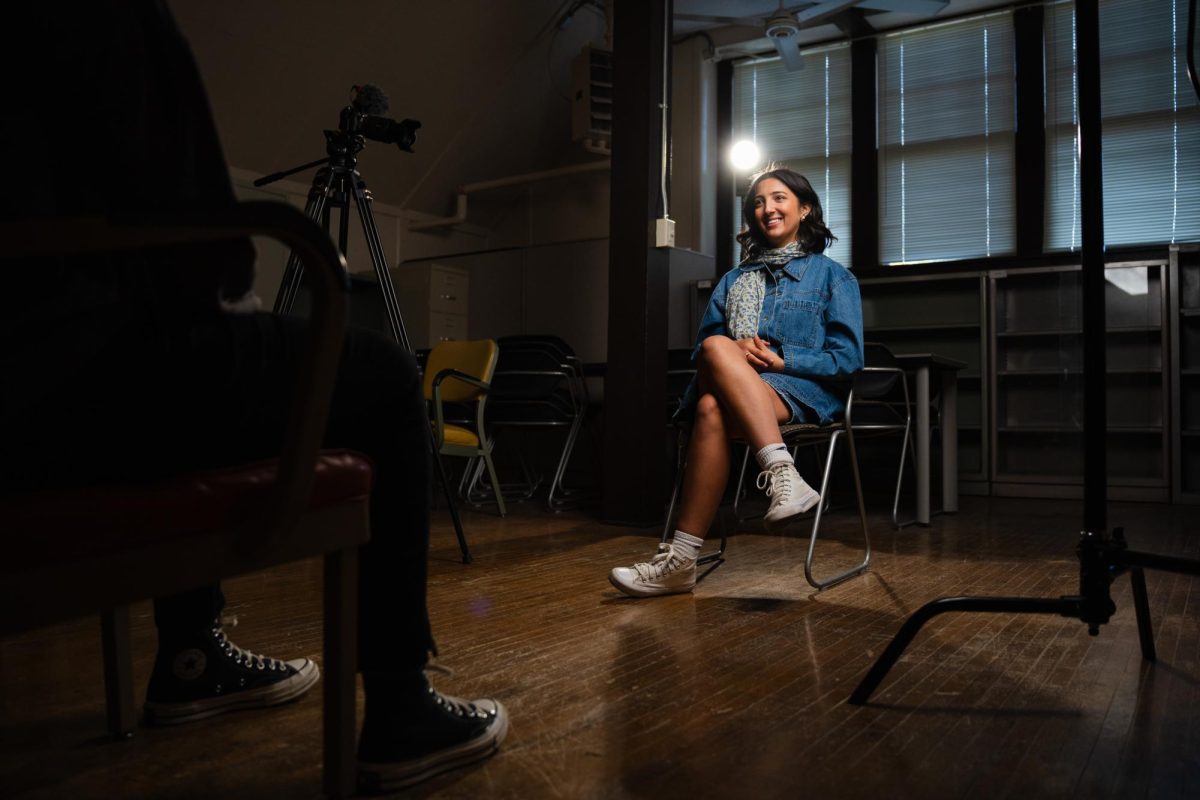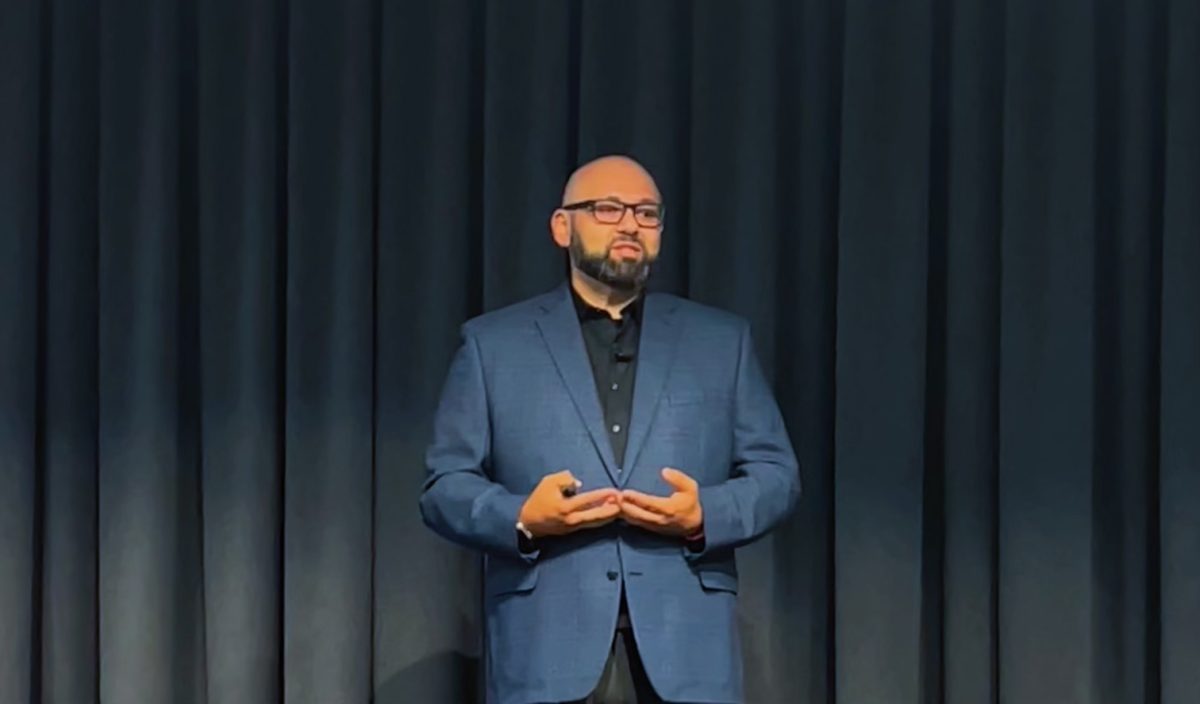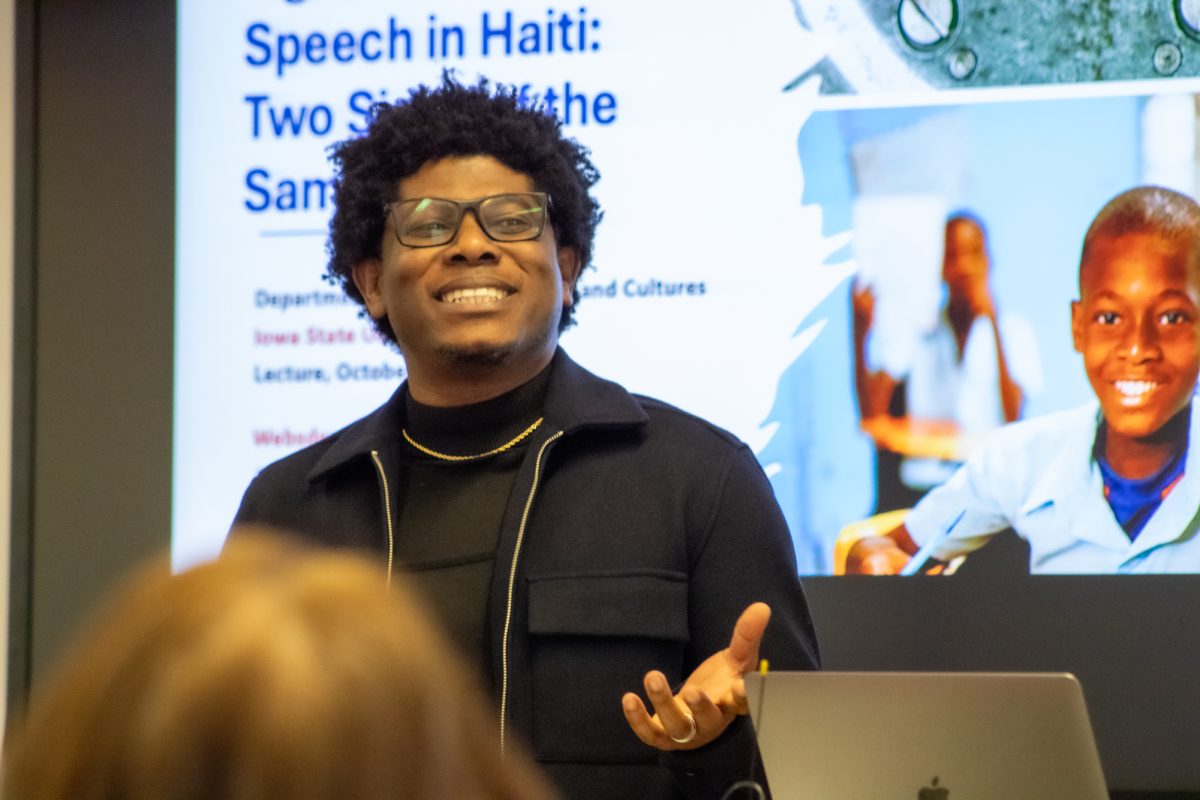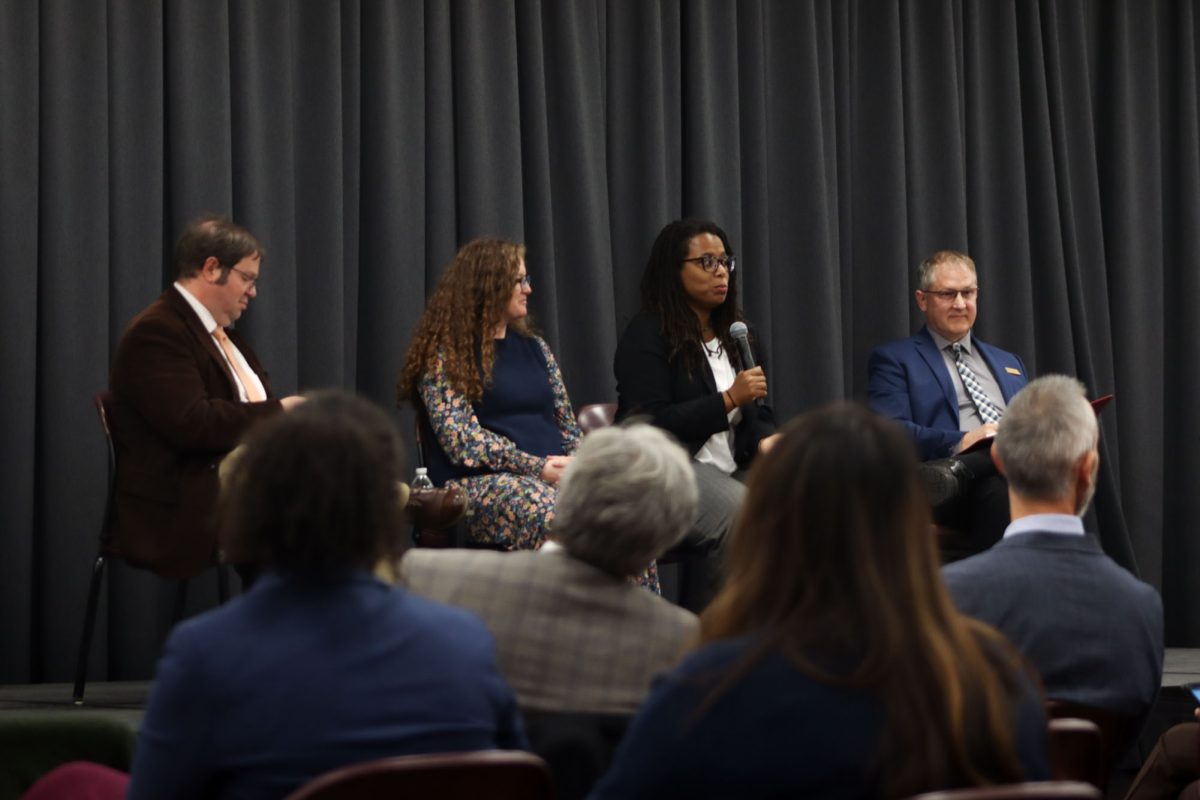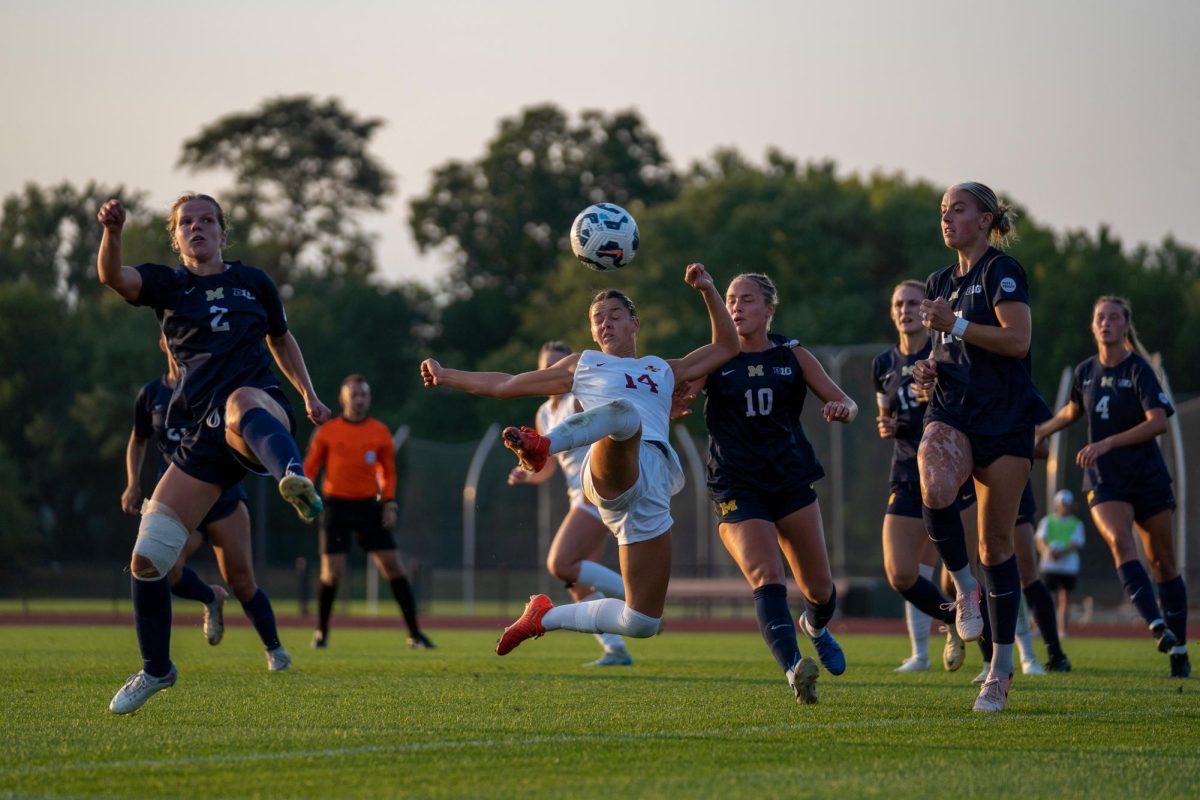At a lecture Tuesday at the Memorial Union, Bonnie Stabile, associate dean for student and academic affairs and associate professor at the Schar School of Policy and Government at George Mason University, spoke on the politics and policy around women in power, underrepresentation and rape culture.
Stabile discussed topics from her book, “Women, Power and Rape Culture: The Politics and Policy of Underrepresentation”, which was co-authored with graduate research assistant and doctoral candidate Aubrey Grant and published in September 2022.
Statistically, it is known that women are underrepresented within the workforce. Considering positions of power, women make up only about a third of the U.S. Legislature, 5% of corporate CEOs and 16% of governors, according to research done by Stabile.
“There’s still almost no place on Earth where women are sharing positions of power equally with men,” Stabile said.
Stabile discussed the codification of power and public policy within legal positivism and its correlation with women being overrepresented in adverse policy outcomes, adding that women hold nearly two-thirds of student loan debt. In true equality, gender would be a controlled variable, not influencing or predicting outcomes in education, proneness to violence, earnings and access to healthcare.
There is also an intersectional component, Stabile said, citing the disparity between positions of power held by men (68% of power positions) and black women (1% of power positions).
“Outcomes as bad as they are for just the category ‘woman’ are much worse from any kind of intersectional perspective,” Stabile said. “There’s abundant evidence that disparities exist.”
Within public policy, Stabile said the policy should serve as a solution based on policymakers’ definition of the problem when aiming for solutions focused on equity, justice and liberty.
Stabile said when she speaks on women’s participation in the public sphere, she considers that liberty pertains to autonomy. “I try to think about if we’re talking about policy in a way that says, ‘Does this policy advance or constrain people’s autonomy? And specifically, women?’” Stabile said.
In “Women, Power and Rape Culture: The Politics and Policy of Underrepresentation”, Stabile said her thesis discussed how the existence and the experience of sexual violence, whether it be just rhetorical or verbal, is so prevalent in women’s lives that it constitutes a structural impediment to women’s realization of own goals, but also to their participation in positions of power in the public sphere.
With regard to sexual assaults, specifically those on college campuses, Stabile said it is clear that the setback to people’s educational attainment and professional attainment is substantial and tangible.
Stabile said she began to study this topic after the Obama administration made it a point to address the issue via specific policies referencing Title IX as a mechanism to deal with campus sexual assault.
The problem with this, Stabile said, was how many who were affected. “Ninety percent of women do not report sexual assaults, and only 2% of the accused face punishment, which is often inadequate,” Stabile said.
At the same time was the #MeToo movement and the largest single-day protest in U.S. history following former President Donald Trump’s inauguration.
“Women were very angry that someone who spoke in denigrating terms, often sexualized terms, about women, was nonetheless given the highest platform to speak from in the country,” Stabile said.
After the women who accused Trump of sexual assault told their stories, often multiple times, Stabile said they still faced the same narrative toward women: “Women are often believed to be liars, they’re not believed. There’s a lot of historical precedent for this.”
Stabile also referenced the story of Allie Cole, a graduate of Harvard Law who experienced sexual harassment as a congressional intern and the organizer of the Purple Campaign. Stabile said the difficulty around fighting underrepresentation with policy is that the actual policies often make things unnecessarily cumbersome, though she believes that to be intentional.
“Power protects itself,” Stabile said. “There’s the procedural and the mechanical. Then there’s also the social construction and stereotypes and the social part, and they work together to keep us in a spot where the advancement that we thought we’d be saving is just not as great as it had been.”
Stabile said representation that is demonstrably visible does matter when looking at data, yielding outcomes better not just for women but for all in society when voices are proportional to a representative.
“Only with the clout conferred by political and economic power can women turn the tide towards justice and require the narrative that has silenced them for so long,” Stabile said in reference to “Women, Power and Rape Culture: The Politics and Policy of Underrepresentation”.


